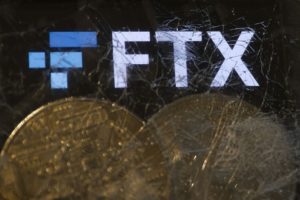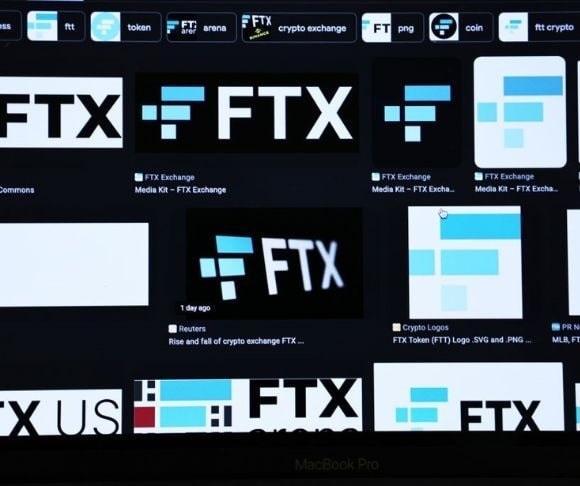The collapse of Sam Bankman-Fried’s cryptocurrency exchange FTX exposed everything that is currently wrong with the $1 trillion crypto ecosystem. What went from a tech sector that concentrated on decentralization, innovation, and transparency rapidly metastasized into a get-rich-quick scheme, driven by grifters, be it joke coins or fraudulent platforms. From companies to investors, everyone is being sucked into a financial black hole. But can crypto markets come out of this disaster alive?
FTX: What We Now Know
 Liberty Nation Legal Affairs Editor Scott D. Cosenza, Esq. offered a terrific summary for the uninitiated. FTX and its founder, Sam Bankman-Fried, filed for bankruptcy after widespread concerns about the inappropriate use of client funds led to a run on FTX deposits, resulting in an $8 billion liquidity shortfall. Since then, more details have been exposed about the company, Bankman-Fried, and affiliates. This has triggered a debate: Was this incompetence or a grift?
Liberty Nation Legal Affairs Editor Scott D. Cosenza, Esq. offered a terrific summary for the uninitiated. FTX and its founder, Sam Bankman-Fried, filed for bankruptcy after widespread concerns about the inappropriate use of client funds led to a run on FTX deposits, resulting in an $8 billion liquidity shortfall. Since then, more details have been exposed about the company, Bankman-Fried, and affiliates. This has triggered a debate: Was this incompetence or a grift?
CNBC reported that Alameda Research, FTX’s hedge fund, traded billions of dollars using clients’ deposits without their knowledge and then leveraged the native FTT token as collateral. This explicitly violated the company’s terms of service and, according to legal experts, the law. What makes this situation even more curious is that bankruptcy court documents revealed that Alameda gave a combined $4.1 billion in loans to Bankman-Fried, FTX, subsidiaries, and two executives. Put simply, these firms gave from one hand to the other.
FTX’s balance sheet was recently leaked to the Financial Times. It highlighted $8.9 billion in liabilities against $900 million in assets, as well as $8.7 billion in less-liquid and illiquid assets (those that are held to sell at market value). This included $554 million in FTT holdings, $472 million in Robinhood stock, and $7.4 million in TRUMPLOSE tokens, which were created by FTX to support a betting market on whether former President Donald Trump would win or lose the 2020 election.
Newly appointed FTX CEO John Ray III, who oversaw Enron’s bankruptcy proceedings, submitted a 30-page bankruptcy declaration to the US Bankruptcy Court of the District of Delaware. He wrote that he had never seen “such a complete failure of corporate controls and such a complete absence of trustworthy financial information as occurred here” in his 40-year legal and restructuring career. “The debtors did not have the type of disbursement controls that I believe are appropriate for a business enterprise,” Ray noted. He revealed that he did not have confidence in the accuracy of the balance sheets for FTX and Alameda, adding that it would take time to produce accurate financial statements.
Ray uncovered that FTX used corporate funds to acquire real estate in the Bahamas and other personal items using the names of employees and advisors. It would be hard to reclaim these residential properties because there were no records of financial transactions. Plus, Ray pointed out that he has been unable to reach employees as they have either fled or did not exist. In addition, something that might confirm his assertion that FTX was comprised of “inexperienced, unsophisticated and potentially compromised individuals,” the new CEO discovered that payment and reimbursement requests were submitted through an online chat platform and “a disparate group of supervisors approved disbursements by responding with personalized emojis.”
Washington is getting involved in what some say is the scandal of the century. Next month, the House Financial Services Committee will hold a hearing to investigate the demise of FTX. Reps. Patrick McHenry (R-NC) and Maxine Waters (D-CA) will call upon Bankman-fried. Moreover, Sens. Elizabeth Warren (D-MA) and Dick Durbin (D-IL) penned a letter to Bankman-Fried and Ray, asking for documents to offer more insight into the downfall of FTX.
Is This the End of Crypto?

(Photo by Jakub Porzycki/NurPhoto via Getty Images)
Cryptocurrency has been one of the worst-performing assets in 2022 after its market cap peaked above $2 trillion in November 2021. From Dogecoin to Grimace Coin to Shiba Inu, the industry’s meteoric ascent was fueled by the Federal Reserve injecting trillions of dollars of liquidity into the financial system and slashing interest rates to zero, manufacturing the Everything Bubble, which included virtual tokens. Most of the space did not possess strong fundamentals to support such astronomical valuations. Now that the punch bowl is no longer spiked and the party is fading to black, the highly speculative asset was first to crumble, proving that it is not an inflation hedge. As these digital currencies cratered, so did the industry’s largesse, much like the dot-com-era tech sector or the real estate market in 2008.
But the critical question is: Does this spell the end of crypto? Unlikely. Be it Blockchains or smart contracts, the technology that was born from Bitcoin more than a decade ago is already integral in the broader economy. Even much of Wall Street has turned bullish on crypto. What might be abandoned are the core principles of crypto in favor of a watered-down environment filled with more regulation and centralization. That said, the crypto winter is here to stay, but it will eventually transition to spring, and the industry will experience a revival, a renewal, and a resuscitation. After 2001, the Amazons and Googles transformed into titans. Following the subprime meltdown in 2008, the housing market rebounded. It is only inevitable that crypto will emulate this pattern.




